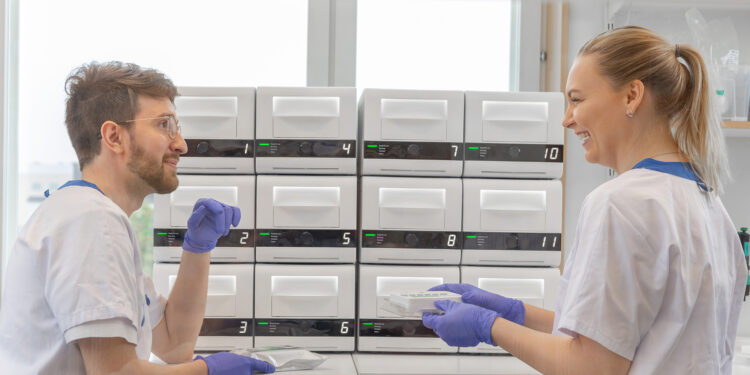The study, initiated by Dr Sundqvist, will investigate the clinical utility of a new rapid workflow for prediction of optimal antibiotic treatment for patients with urosepsis. Urosepsis is caused by infections of the urinary tract where the sepsis causing bacteria are hence present in the urine and often, but not always, also in the patient’s blood.
Results with QuickMIC directly from isolates from the urine culture will be used to predict the antibiotic susceptibility testing (AST) results of the bacteria and be compared to results from the blood cultures from the same patient. The clinical study will compare the time to AST results of the urine culture and the positive blood culture for urosepsis patients.
“Urinary tract infections that causes sepsis is a challenging problem in hospitals today, where early targeted treatment and the use of AST results from urine culture potentially can reduce broad-spectrum antibiotics and their associated adverse effects, and the length of hospitalisation,“ says Martin Sundqvist, Senior Physician, Assoc. Prof., Clinical Microbiology at Örebro University Hospital.
“This is a very interesting study from several perspectives. Not only may it indicate important clinical impact, but it may also broaden the intended use of the QuickMIC system,” says Sara Thorslund, co-founder and CEO of Gradientech.
The QuickMIC system’s ultra-rapid and precise AST results enable sepsis patients to receive specific personalised guidance of the right antibiotic and the right dose in record time. The modular design offers affordable scaling possibilities, making QuickMIC attractive to both small and large hospital laboratories. QuickMIC and its Gram-negative panel are CE marked and commercially available in Europe but not yet available for sale in the United States.




